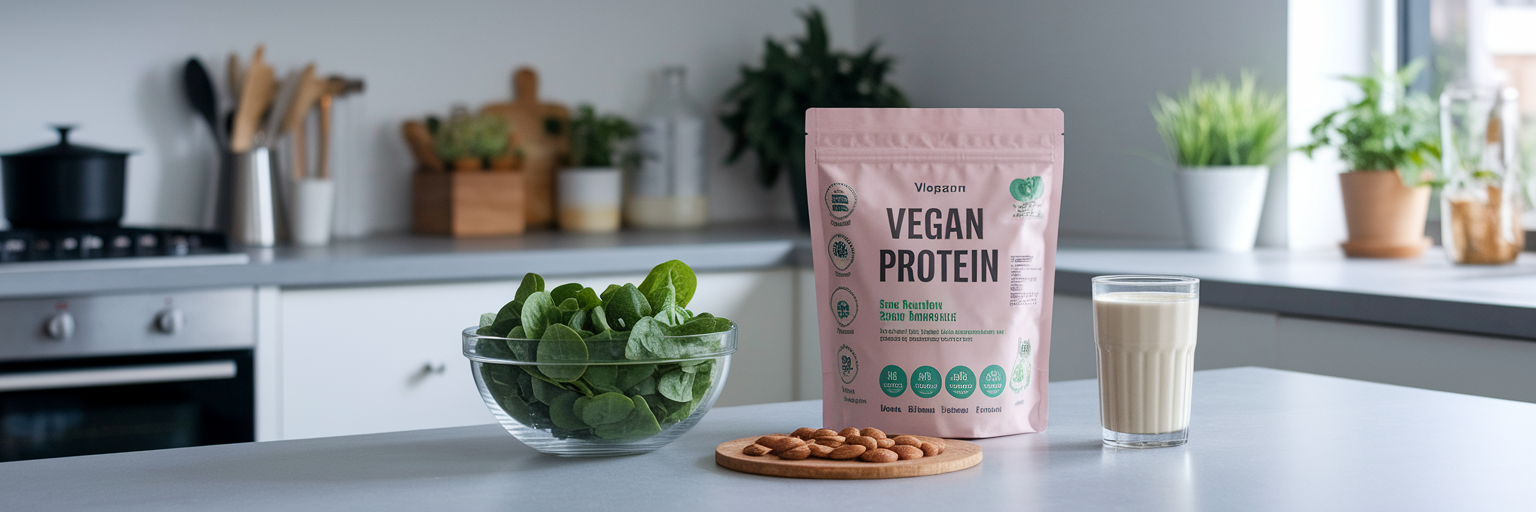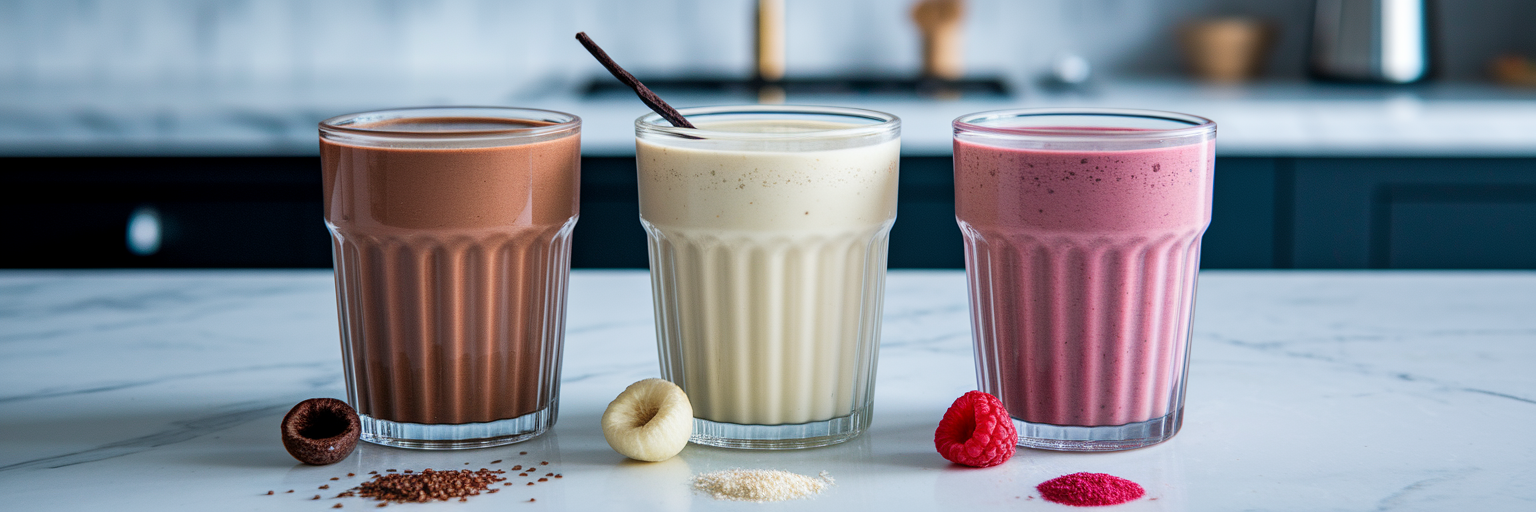More Than Just Muscle: Your Fitness and Hormone Connection
Many active women know the feeling. You crush a tough workout, but later your energy crashes or your cycle feels a bit off. This isn't just a coincidence. It’s a clear sign that your fitness and hormonal health are deeply connected. The combination of intense exercise, daily stress, and your diet can disrupt the delicate balance of a woman's hormonal system, which influences everything from your mood and energy to menstrual regularity.
Think of this as your guide to supporting your body from the inside out. We'll explore how plant-based protein can be a strategic tool for both effective vegan protein for muscle recovery and for supporting your overall hormonal equilibrium. It’s about feeling strong in your workouts and balanced in your daily life.
Why Plant-Based Proteins Are a Woman's Ally
When it comes to fueling an active lifestyle, plant-based proteins offer some unique advantages specifically for women. They go far beyond just rebuilding muscle tissue, playing a key role in supporting your entire system.
Complete Protein for Muscle Repair
Let's clear up a common myth: you absolutely can get complete protein from plants. The idea that plant proteins are inferior is outdated. By combining sources like pea, brown rice, and soy, you get the full spectrum of essential amino acids your muscles need to repair and grow stronger after a workout. This makes them a powerful and effective choice for recovery.
Support for Metabolic and Hormonal Health
A diet rich in plants is consistently linked to better long-term health outcomes. In fact, research highlighted by the American Heart Association shows that eating certain plant-based foods can reduce heart disease risk in postmenopausal women. For plant based protein hormonal balance, ingredients like flax and soy contain phytoestrogens, which are plant compounds that can help gently support the body’s hormonal systems. This, along with their anti-inflammatory properties, can be helpful in managing symptoms related to PMS and menopause.
Gentle on Digestion
If dairy-based proteins like whey leave you feeling bloated or uncomfortable, you're not alone. Plant proteins are a fantastic alternative for anyone with lactose sensitivity. Plus, they often contain fiber, which is essential for a healthy gut. A happy gut is directly linked to better hormone regulation, creating a positive cycle for your overall wellness. Exploring a plant-forward lifestyle offers a wide array of benefits, as we often discuss on our blog.
Decoding the Label: Essential Nutrients to Look For

Knowing how to choose protein powder can feel overwhelming with so many options on the shelf. The key is to look past the marketing and focus on the nutrients that active women need most. A high-quality formula will be fortified with ingredients that support your energy, bones, and stress response.
Here are a few essentials to look for:
- Iron: Active women are at a higher risk for iron deficiency, which can lead to fatigue and impact performance. Iron is vital for transporting oxygen to your muscles, so finding a powder fortified with it can make a real difference in your energy levels.
- Magnesium & B Vitamins: Think of these as your stress-management team. Magnesium helps with muscle relaxation and can ease cramps, while B vitamins are crucial for producing energy and regulating your mood. They help your body manage cortisol, the primary stress hormone.
- Calcium: We all know calcium is important for bones, but it's especially critical for active women to maintain bone density. Many vegan proteins are fortified with plant-derived calcium to support both bone health and proper muscle function.
Beyond the nutrients, always check for a clean label. A high-quality formula, like our natural chocolate vegan protein, will have a short, understandable ingredient list without artificial sweeteners like sucralose or aspartame. Look for third-party certifications, like NSF Certified for Sport, which guarantee the product has been tested for purity and potency.
| Nutrient | Why It's Essential for Active Women | Common Plant-Based Sources |
|---|---|---|
| Iron | Prevents fatigue, supports oxygen transport to muscles | Lentils, spinach, fortified cereals, pea protein |
| Magnesium | Aids muscle relaxation, reduces cramps, supports stress response | Almonds, pumpkin seeds, dark chocolate, leafy greens |
| B Vitamins (B6, B12) | Crucial for energy metabolism and mood regulation | Nutritional yeast, fortified plant milks, shiitake mushrooms |
| Calcium | Maintains bone density and supports muscle function | Fortified tofu, almond milk, chia seeds, kale |
Note: This table highlights nutrients crucial for women's health that are often included in high-quality vegan protein formulations or can be easily added to a smoothie.
The Hormone-Balancing Botanicals
Some of the best vegan protein powders for women include more than just protein. They incorporate functional botanicals that provide targeted support for hormonal health and stress management. These ingredients work with your body to help you find a greater sense of balance.
Adaptogens for Stress Management
Adaptogens are a class of herbs and mushrooms that help your body adapt to physical and mental stress. They work by helping to regulate your cortisol levels. When cortisol is chronically high, it can disrupt your other hormones, so keeping it in check is key for overall balance.
Spotlight on Maca Root
Maca is a root vegetable from Peru that has been used for centuries to support hormonal equilibrium, energy, and libido. It’s particularly popular for helping to ease symptoms of PMS and menopause. The best part? It works by nourishing the endocrine system without containing any hormones itself.
Functional Proteins: Hemp and Soy
Some protein sources do double duty. Hemp protein is rich in omega-3 and omega-6 fatty acids, which are building blocks for hormones. Soy protein contains isoflavones, which can offer mild estrogenic support. While soy has been debated, moderate consumption of high-quality, organic soy is considered beneficial by many health experts. As with anything, balance is key. Emerging research, such as a 2025 review in Frontiers in Nutrition, is exploring the neurobiological pathways through which these plant compounds can influence women's reproductive health.
Finding Your Perfect Flavor and Formulation

Let's be honest: if a protein powder doesn't taste good, you're not going to use it consistently. Thankfully, the days of gritty, chalky vegan proteins are long gone. Modern formulations are smooth, delicious, and easy to mix. Popular natural protein powder flavors like rich chocolate, creamy vanilla bean, and salted caramel are often sweetened with natural, zero-calorie options like monk fruit or stevia, so you can avoid artificial additives.
You'll also see different formulations, mainly protein isolates and concentrates. Here’s a quick breakdown:
- Isolates: These are more refined, offering a higher percentage of protein per serving with fewer carbs and fats. They are great if your primary goal is lean muscle recovery.
- Concentrates: These are less processed and retain more of the whole-food nutrients and fiber from the plant source. They are excellent for digestive support and overall wellness.
A practical tip? If you're unsure what you'll like, start with single-serving packets or a smaller tub to find your favorite before committing to a large one. The best way to find what you love is to explore all the options available.
How to Weave Protein Powder into Your Daily Routine
A protein shake is a great start, but there are so many other ways to incorporate protein powder into your diet. Getting creative ensures you stay consistent and reap the benefits. Here are a few simple ideas:
- Boost your breakfast: Mix a scoop into your morning oatmeal, overnight oats, or even your pancake or waffle batter for a filling, protein-packed start to the day.
- Power up your snacks: Stir it into plant-based yogurt or a bowl of chia seed pudding for a satisfying snack that will keep you full for hours.
- Create a hormone-balancing smoothie: Use this simple framework: a liquid base (like almond milk), a scoop of protein, a healthy fat (like avocado or almond butter), a source of fiber (like chia seeds or spinach), and a low-glycemic fruit (like berries).
While protein is excellent for post-workout recovery, it's also a great tool for stabilizing blood sugar throughout the day, which helps prevent energy dips and cravings. Finding the best vegan protein powder for women is about combining great nutrition with a routine that truly works for you. For more inspiration, check out these 3 easy vegan protein recipes you'll actually crave.
How do you use your protein powder? Share your favorite recipes in the comments below!



